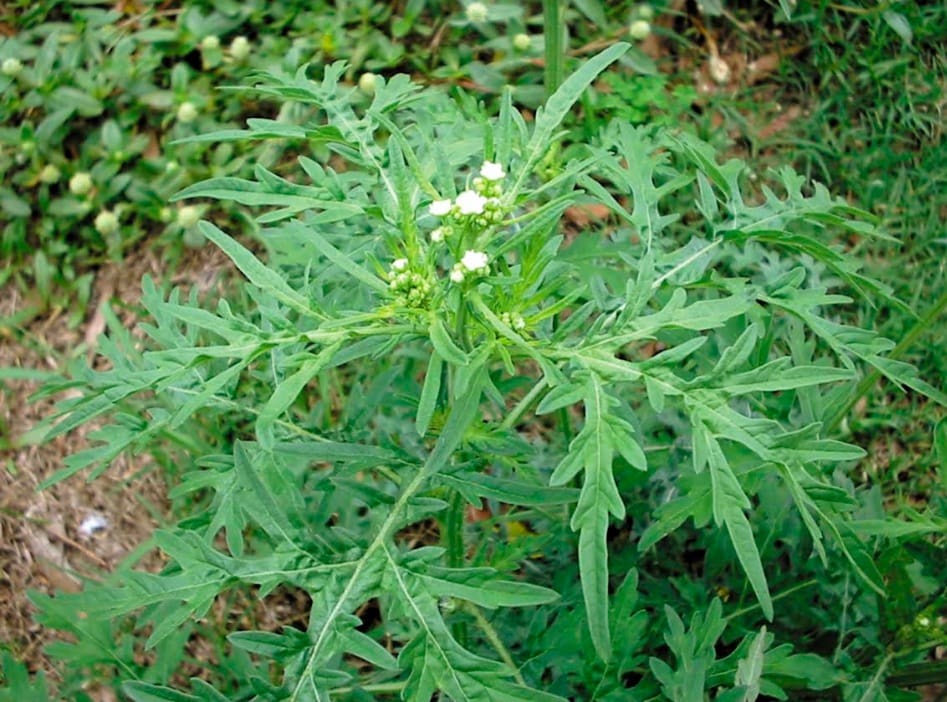
A parthenium plant with flowers appearing. Image – NSW DPI.
OUTBREAKS of the prohibited weed Parthenium have been detected at Forbes and Walgett in New South Wales, prompting a call for vigilance from the state’s Department of primary Industries.
NSW DPI state priority weeds coordinator, Philip Blackmore, said the vigilance of local council biosecurity officers has detected outbreaks of parthenium weed, Parthenium hysterophorus, near Forbes and Walgett.
“NSW DPI is working with the Forbes Shire and Castlereagh-Macquarie County Councils to eradicate the parthenium, which poses the greatest weed threat to NSW.
“We suspect these incursions arrived from Queensland, where the weed is endemic covering an area of 18 million hectares in central Queensland, and urge the public to be on the lookout for parthenium plants along roadsides in the central west and north-western NSW,” Mr Blackmore said.
A number of plants were found in two locations near Cumborah.
“Due the sites’ proximity to Queensland, roadside incursions of parthenium weed have been seen in the area. However, this is the first incursion to be recorded on Wilby Wilby Road.
“In 2006, more than 1000 plants were discovered on a private property approximately 12 kilometres east of one of the current incursions,” Mr Blackmore said.
“A large, flowering parthenium plant, which could have grown up to 1.5 metres or higher, was found along the Newell Highway adjacent to the Specks Gap rest area, about 31 kilometres south-west of Forbes.”
Parthenium is significant biosecurity risk in NSW and is prohibited under the NSW Biosecurity Act 2015.
Parthenium weed spreads rapidly, is dangerous to grazing animals and reduces crop and land values. Contact with the plant or pollen can cause serious allergic reactions in people, NSW DPI said.
Mr Blackmore advised people who suspect they have seen parthenium weed to note the location and call the NSW Biosecurity Helpline, 1800 680 244, NSW DPI, Local Land Services or their local council with the details for identification and assistance.
More information about parthenium weed and how to identify the plant at different growth stages is available from NSW DPI, https://weeds.dpi.nsw.gov.au/weeds/partheniumweed

HAVE YOUR SAY